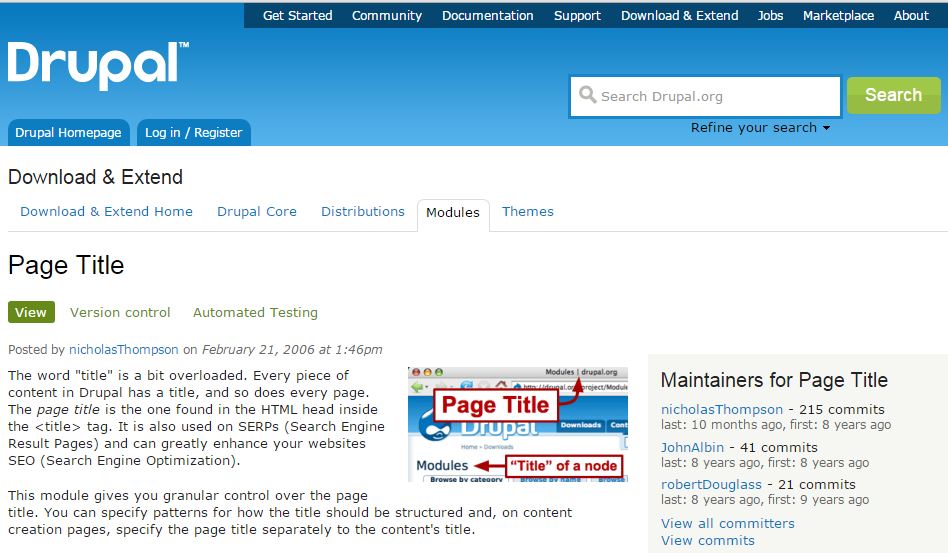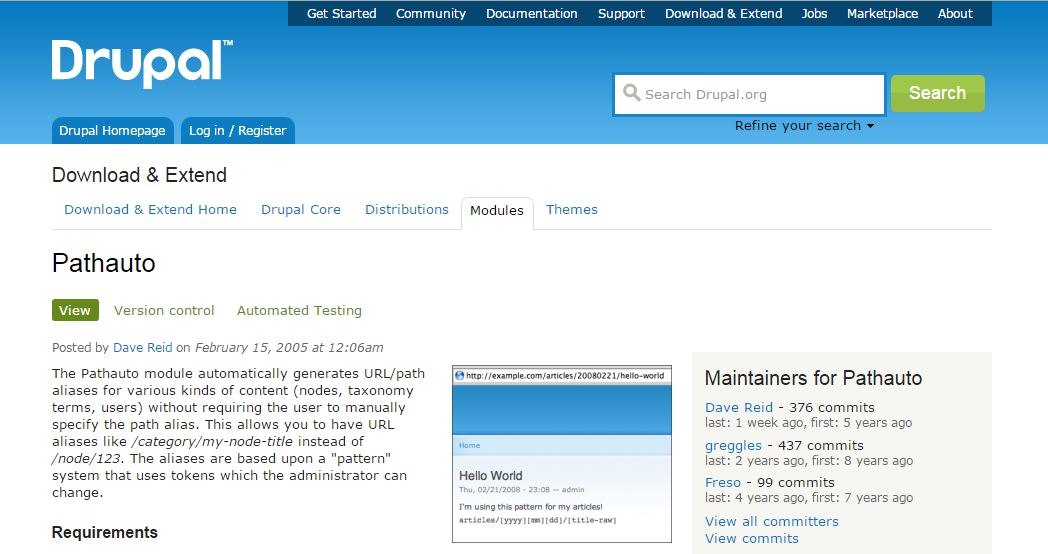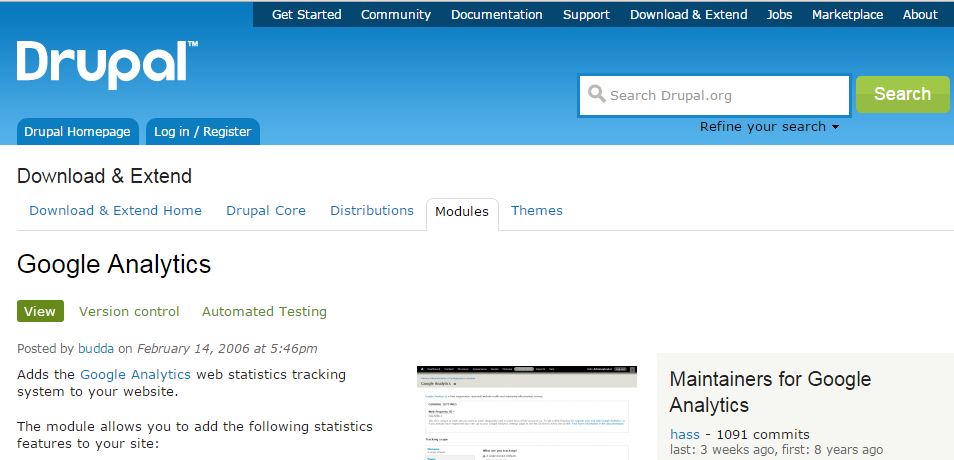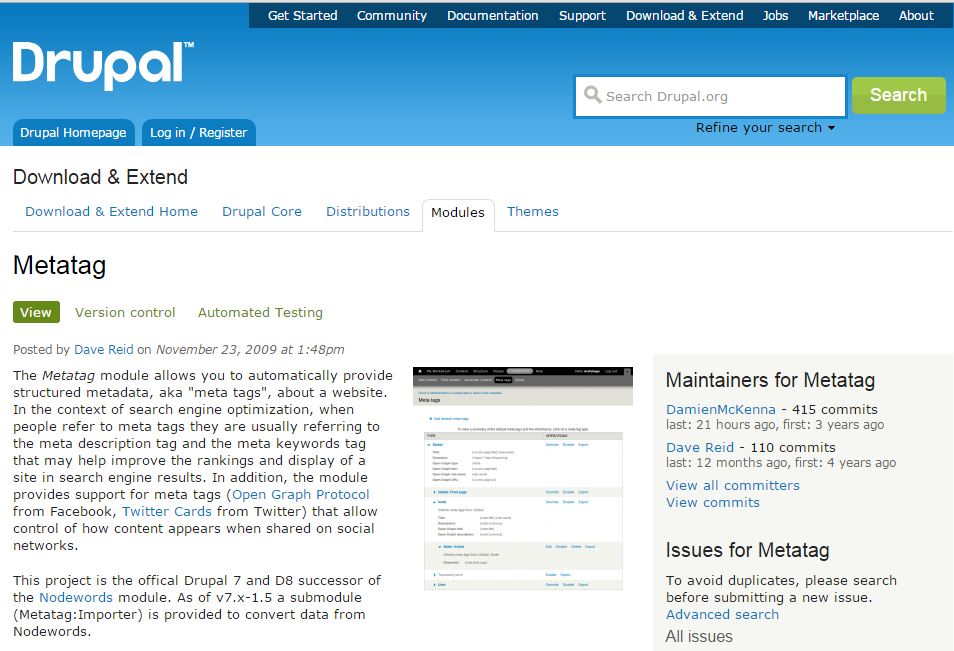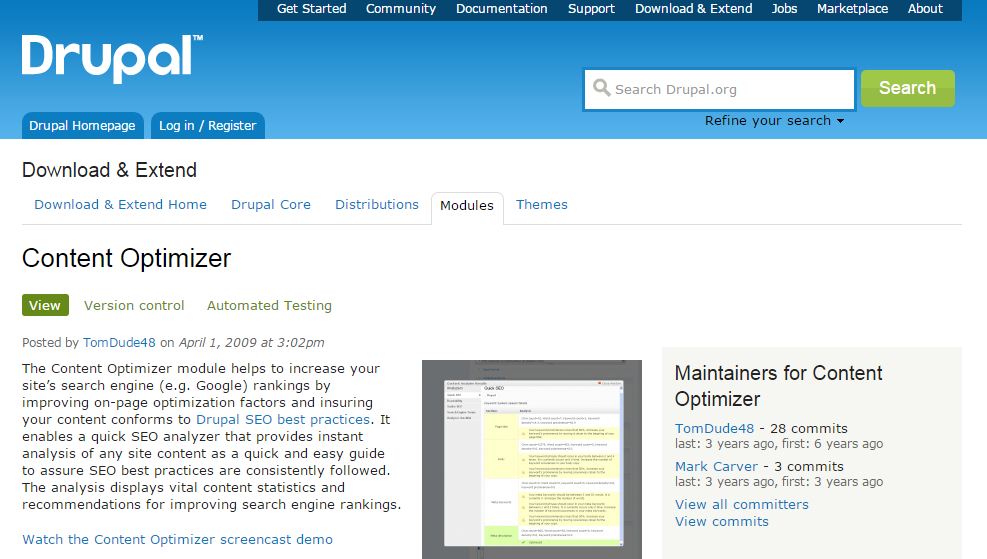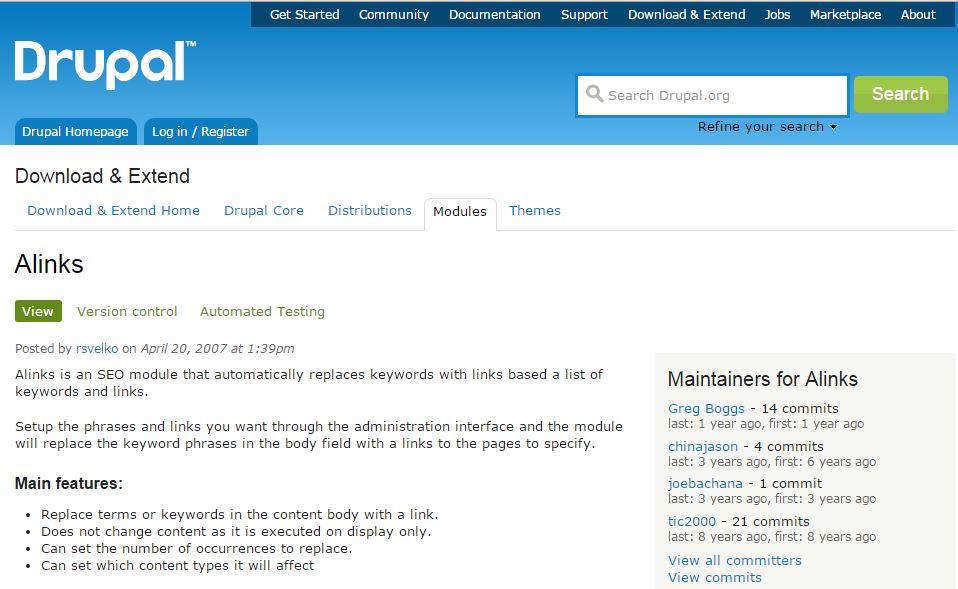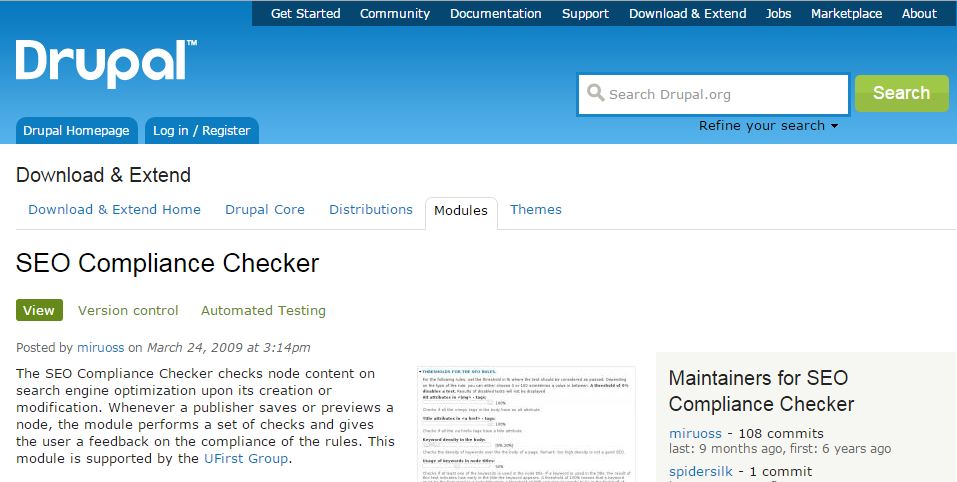Tips For Drupal SEO Modules


Drupal is an open source content management platform powering millions of websites and applications. Here are the SEO modules that you should definitely have installed and configured if you own a Drupal website
How you can quickly harness the power of Drupal to get your site indexed and get top rankings in Search Engines.
Best 10 Drupal modules for website marketing
1) Page Title
You will Allows use to separate the page title from the content. The title given to a page is usually peppered with relevant keywords to attract maximum attention from search engines.
Click the Following Link and See how the page titles should be structured.
https://www.drupal.org/project/page_title
2) Pathauto
The Pathauto module to define patterns and automatically generate URLs based on these patterns. This module helps to generate optimized URLs that are highly SEO-friendly in nature.
For example,
Pathauto helps convert a Drupal-generated URL such as “mywebsite/node/15” into a more meaningful one like “hostripples.com/web-hosting/best-web“.
Click the Following Link and See how the Pathauto should be structured.
https://www.drupal.org/project/pathauto
3) XML Sitemap
XML Sitemap module will help search engine crawlers determine what new content is on your website, and what the paths are. Sitemaps are a listing of content on your website.
Click the Following Link and See how the XML Sitemap should be structured.
https://www.drupal.org/project/xmlsitemap
4) Google Analytics
This module will reports on who is visiting your website. You can see the top keywords for your site, your top entry and exit points, who is driving traffic to your site.
Click the Following Link and See how the Google Analytics should be structured.
https://www.drupal.org/project/google_analytics
5) Global Redirect
Global Redirect module handles 301 redirects on your website automatically.
Click the Following Link and See how the Global Redirect should be structured.
https://www.drupal.org/project/globalredirect
6) Redirect :
Search engines hate pages that can be accessed two or more URLs. Get rid of duplicate URLs by using the Redirect module to explicitly redirect to useful links while getting rid of 404 error pages.
Click the Following Link and See how the Redirect should be structured.
https://www.drupal.org/project/redirect
7) Metatag :
Metatag module define metadata on your content. This module is highly recommended to have Meta Descriptions on all content on your website. This module allows you to set some meta tags for each node, view or panels page.
Website can go nowhere without “Meta tags”, “Description”, “Page Title” or “Keywords”, Drupal has you covered! Each page you create can have their own share of meta tags to rise above other competing sites.
Click the Following Link and See how the Metatag be structured.
https://www.drupal.org/project/metatag
8) Content Optimizer :
Content Optimizer module will help monitor nodes within your site and provide useful tips on SEO best practices.
Click the Following Link and See how the Content Optimizer be structured.
https://www.drupal.org/project/contentoptimizer
9) Alinks :
Alinks module will create automatic links. Allows users to associates defined text to links. This module is based on the wordpress module “alinks”. Very easy to use, just enter your normal content and setup the terms/links you want on your site through the administration interface.
Click the Following Link and See how the Alinks be structured.
https://www.drupal.org/project/alinks
10) SEO Compliance Checker :
This module mainly checks for on page SEO. If a publisher saves or previews a node, the module performs a set of checks and gives the user a feedback on the compliance of the rules.
Click the Following Link and See how the SEO Compliance Checker be structured.
https://www.drupal.org/project/seo_checker

